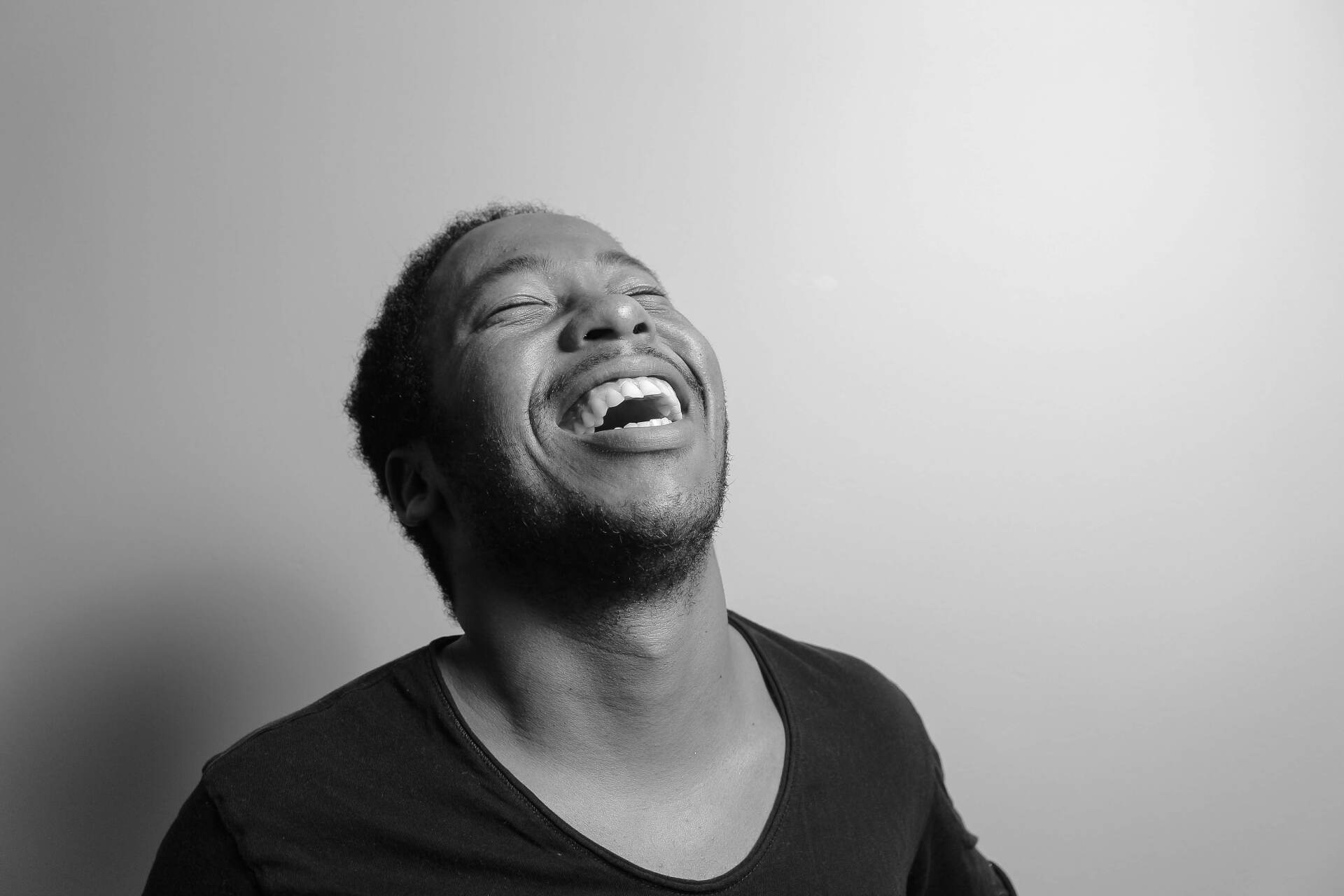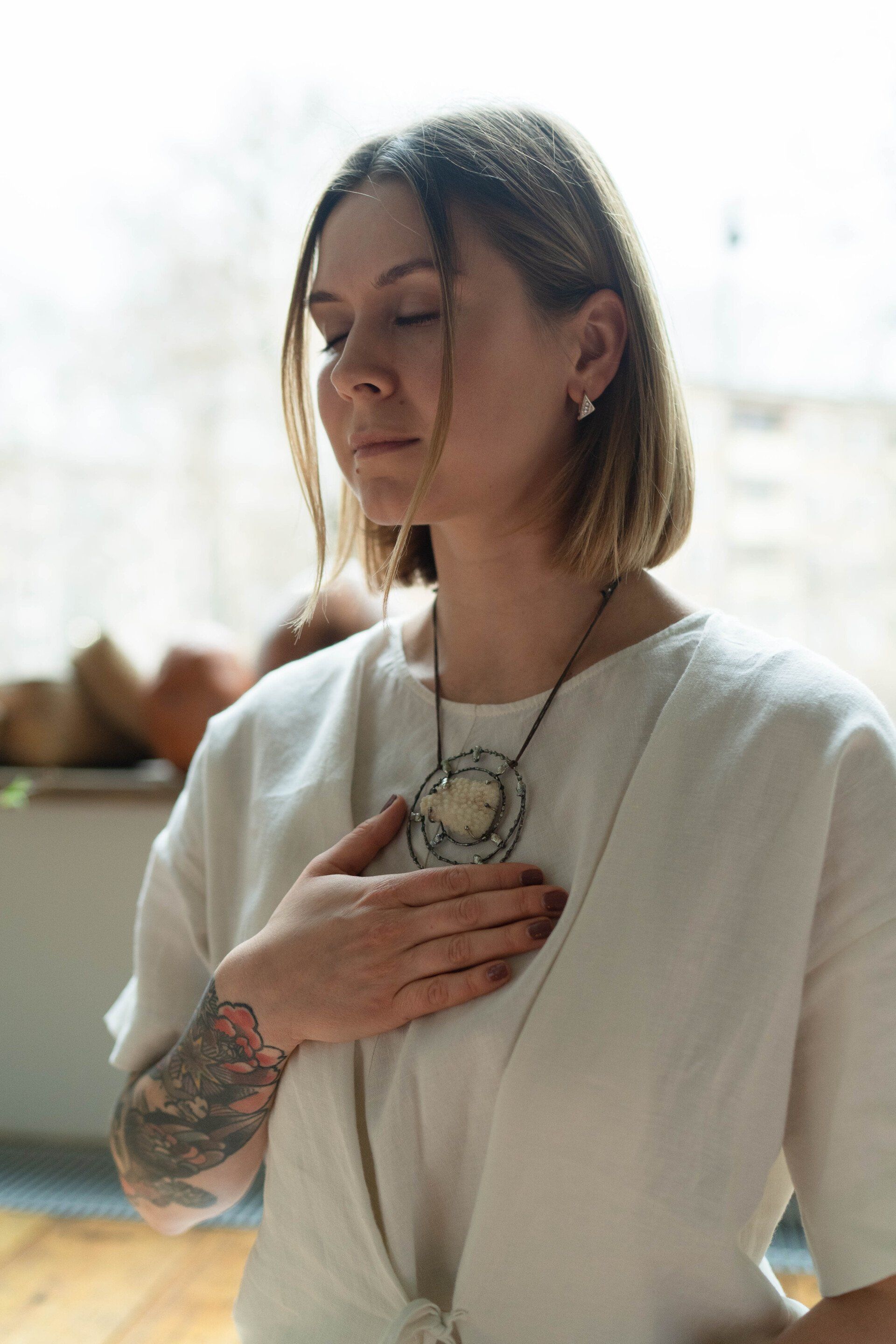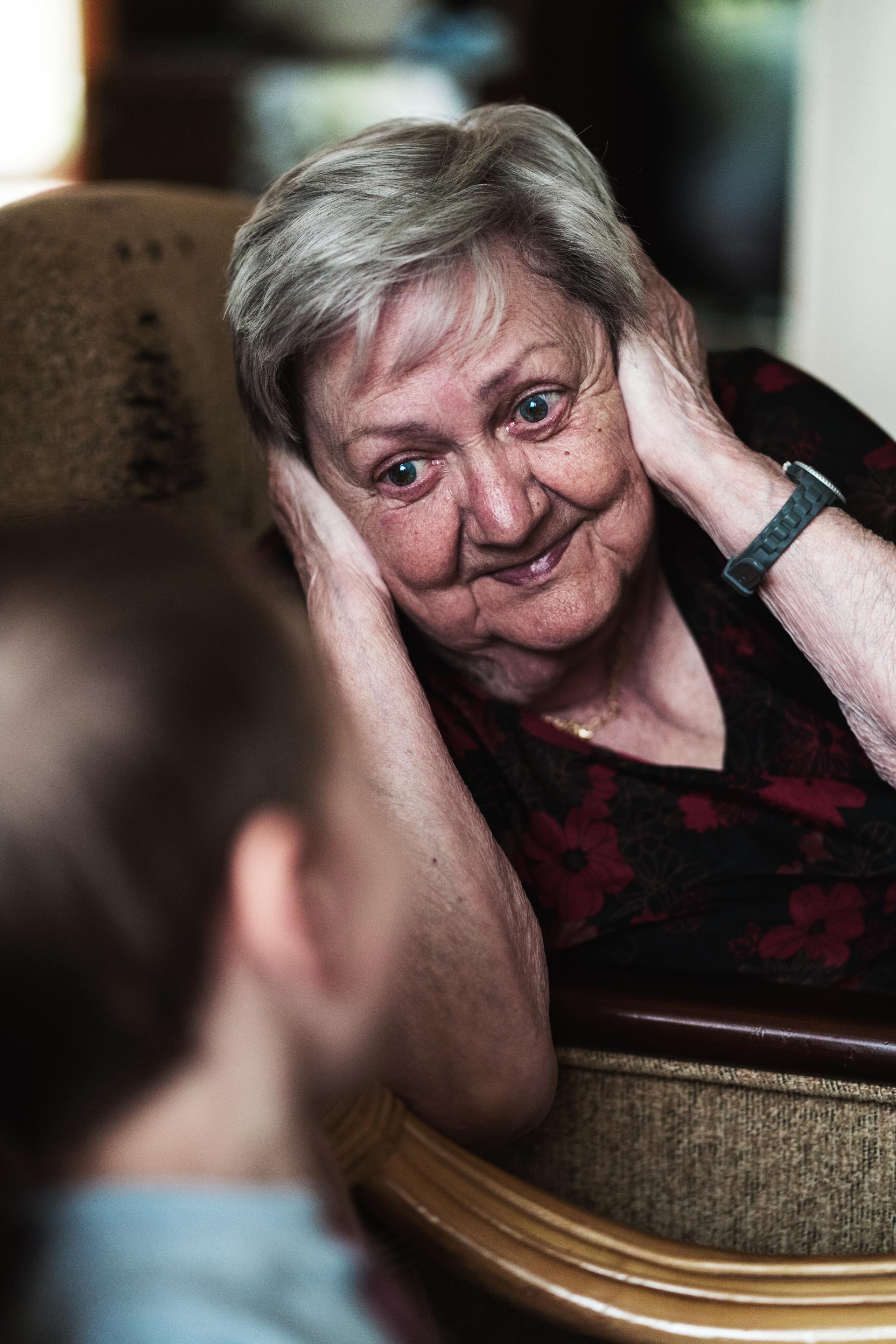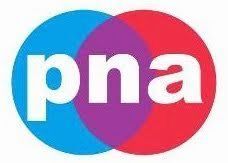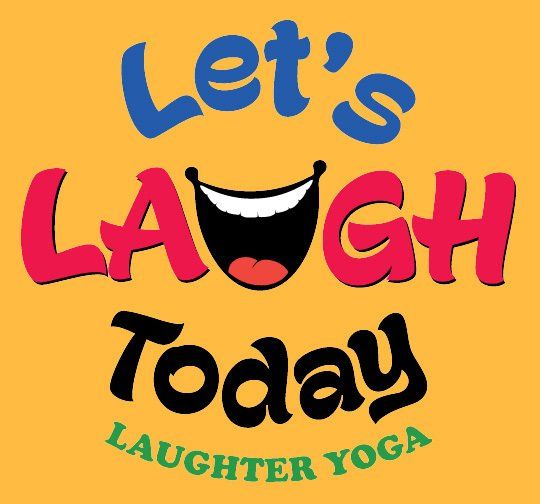Play in Mental Health
The opposite of play is not work, it's depression.
Dr. Brian Sutton Smith
Depression. Loneliness. Stress and Anxiety. Loss. Fear.
So many human beings are experiencing emotional difficulties. A 2023 study by researchers at Harvard Medical School and the University of Queensland show that half of the world’s population will experience a mental health disorder in their lifetime. This is painful and alarming.
Playing with others - friends and strangers - can make a huge difference for the mental health of both children and adults.

Play in
Children
It is through play that they develop, discover and engage with the world around them, it boosts confidence, develops cognitive problem solving skills, creativity and flexibility, creates social connections and much more.
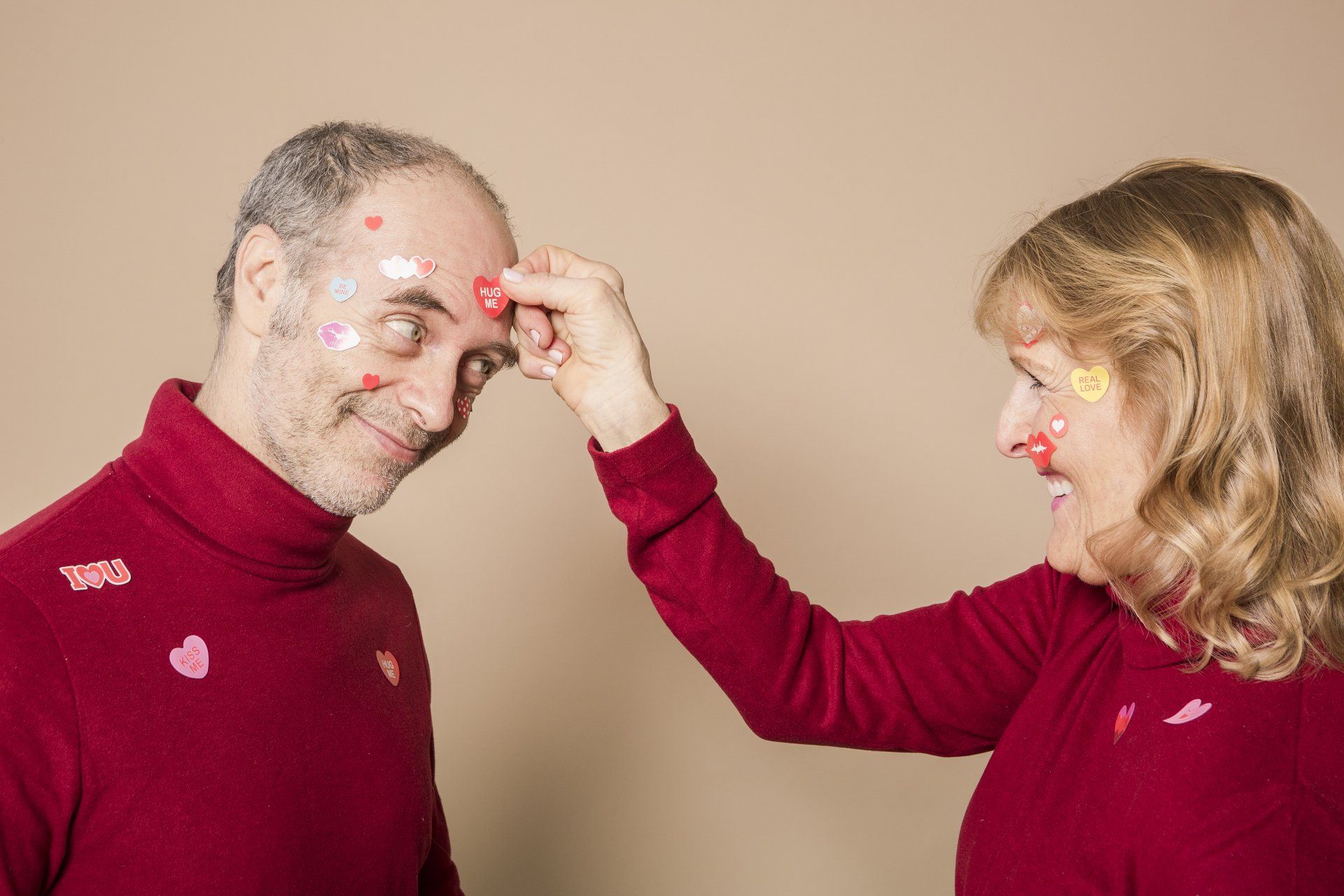
Play reduces stress, creates optimism, produces social connection and understanding, disrupts habitual ways of thinking and acting, and creates opportunities for happiness, joy and new stimulating life experiences with others.
All of this and more has a huge impact on our individual and collective mental health.
PAST EVENTS
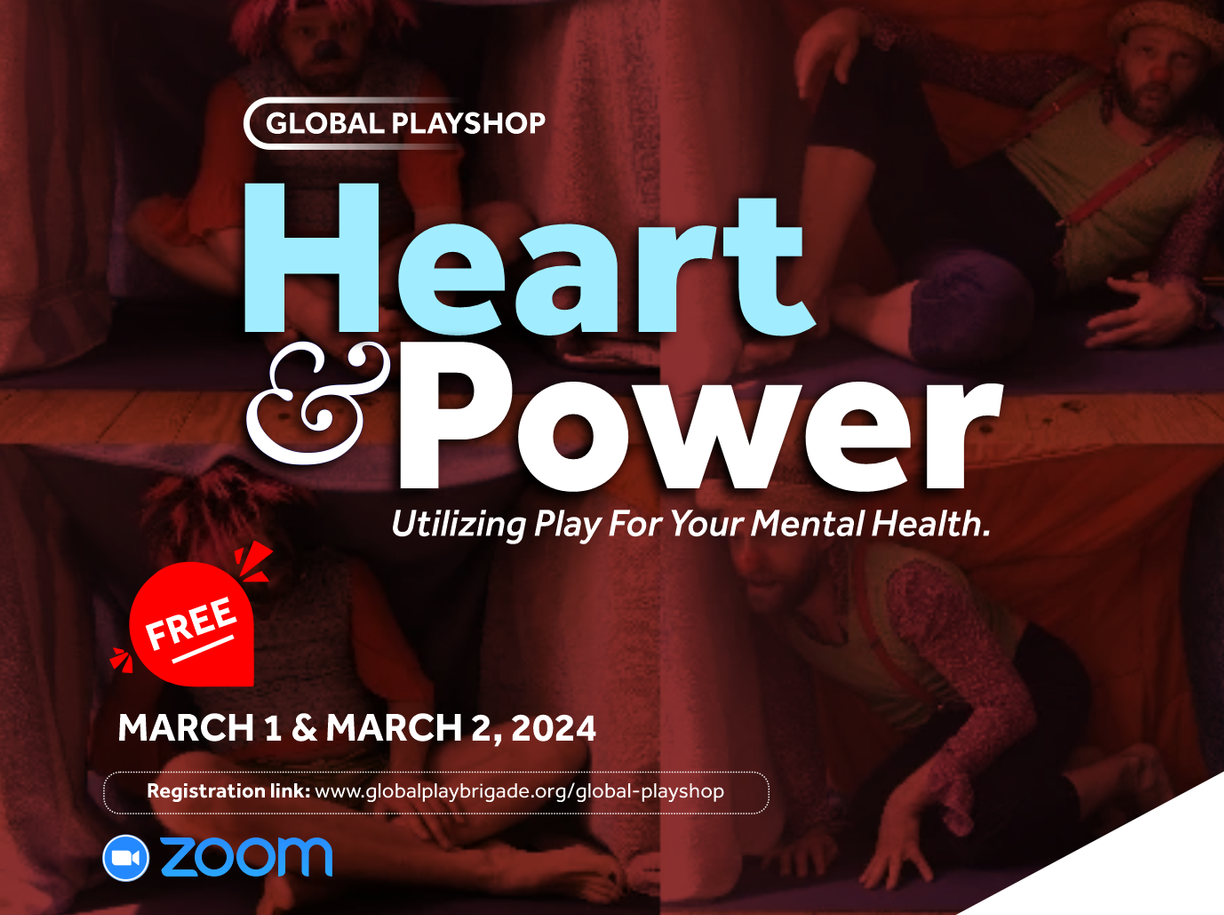
Heart & Power
Utilizing play for mental health
March 1 & 2, 2024
Global Play Brigade invites you to participate in our March Global Playshop, called Heart and Power, to experience emotional support, joy, social connection, and thoughtful conversations with people from around the world.
Take care of your mental health and emotional development!
Blog Posts
Resources on Play in Mental Health
Articles
What's the Opposite of Play? by Lois Holzman, Psychology Today
What is Adult Play? Playfilled
How Does Play Help Children's Mental Health? Right to Play
The Benefits of Play for Adults HelpGuide.org
The Virtuousness of Adult Playfulness by René T Proyer & Willibald Ruch, Psychology of Well-Being: Theory & Practice


